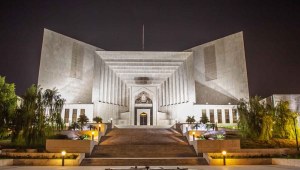Property prices and rents in Abu Dhabi are likely to decrease in coming months, putting the emirate more on par with neighbouring Dubai, it is claimed.
The property markets in both emirates are entwined and this is likely to have a stabilising effect with price differences between the two narrowing, according to an analysis from property advisors Tasweek Real Estate Marketing and Development.
‘The rent differential between the two has resulted in a significant proportion of cross emirate migration. If this trend continues then it will exert further downward pressure on prices and rents in Abu Dhabi, at least narrowing the difference between the two in the medium term,’ its latest report says.
The key drivers for apartment, office and retail prices in the UAE for the future will be location, quality of construction, community facilities, completed infrastructure, and availability of competitive financing solutions. Critical elements for more transactional activity, on the other hand, include affordability, return on investment, and trust worthy exchange partners,’ analysts explain.
‘Prices seem to be stabilizing and even increasing in selected areas where lifestyle communities are offered along with easy access to retail, leisure, education and entertainment. All in all, 2010 is expected to play out as a crucial period for determining the real estate industry’s direction as the world pursues post crisis recovery,’ the report adds.
Abu Dhabi has a greater availability of mortgage financing and a short to medium term supply demand mismatch but needs progressive transparency and regulation in the property market. ‘Tasweek believes investments in real estate should be made in Abu Dhabi for the longer term as it offers very low risk and steady returns for the future,’ the report points out.
There is an undersupply in housing in Abu Dhabi which Tasweek estimates at between 22,000 and 32,000 units. There is also a discrepancy as to how many units will be delivered over the next two years, estimated at between 15,500 and 23,000 units.
At the same time transactional activity remained very weak in 2009 and there is very low demand for off-plan properties. ‘It is extremely clear that substantial activity in the future will be made via private equity groups and large institutional investors looking for conservative but higher than usual yields,’ the report says.
Average apartment price fell by 40% to 50% from their peak in Abu Dhabi and average rents for new leases have lost an estimated 20% from their highs in 2008 to the end of 2009, the research shows.
Growth in the Dubai property market is being hampered by lack of mortgage financing. ‘Tasweek believes real estate investments should be made in Dubai for the few who clearly understand the market and are in a position to carry out rigorous due diligence and securitize their capital and future income. This provides a platform for reaping great rewards three to five years down the line when transparency returns to the market,’ the report says.
‘The economic recovery does paint a cautious picture for Dubai’s residential market in the near to medium term when rising supply, if uncontrolled, may hamper price recovery,’ it adds.







